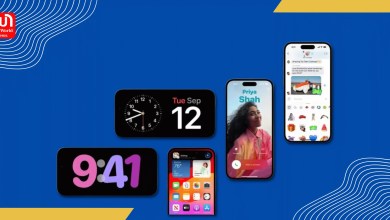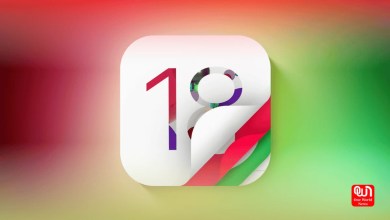‘Look Who Died’ Facebook Scam: Beware and Protect Yourself from Personal Data Theft
Shield Your Data, Beat the Scammers! Watch Out for the 'Look Who Died' Facebook Scam which is now Sweeping across all social media platforms. Stay One Step Ahead, Protect Your Personal Information, and Keep Cybercriminals at Bay. Don't Fall for Their Trap!
‘Look Who Died’ Facebook Scam: Hackers impersonating friends on Facebook, spreading a dangerous scam stealing personal data. Stay vigilant and learn how to stay safe.
If you receive a message from one of your friends that appears suspicious or out of the blue, beware and refrain yourself from opening it, it might be the scam to get to you and your personal data. Currently this scam is spreading like a wildfire in Australia and people are calling it “look who died scam” and is trapping numerous individuals, resulting in the loss of their very personal information. Not just Australia, many cases of this scam have also been reported in India. The scammers‘ whole tactic is to make you click on the link and coax you into exposing your personal details.
In a distressing scenario, hackers employ a very dangerous tactic on Facebook by impersonating the identity of a friend and sending messages via Messenger. These messages often contain alarming phrases like “look who just died,” accompanied by a link to a news article. To make the whole thing more convincing, they may mention your personal connection to the dead person or express their own sadness.
How Does the ‘Look Who Died’ Scam Operate on Facebook?
Dangerous trap sets in motion when you Click on the link, provided by the scammer to access the article. Then a pop will appear on your screen asking you to enter your Facebook username and password,but beware, for this is nothing more than a plan to rob you.
The link contains a high tech software that will allow the hacker to see your login credentials and through those details scammers can access your account and can get your personal pictures and details through your facebook account. Once these cybercriminals get what they want they log you out from your very own account. Then they send the same messages to the people of your friend list and the circle of scam goes on.
Read more:- A Quick Guide on How to Build Brand Awareness
Not just your Facebook account gets compromised but these hackers have the ability to seize all your personal data that is associated with your facebook account, such as email addresses, phone numbers, and birth dates. With this information they can easily gradually get access to your other online accounts, even those unrelated to Facebook. In the worst-case scenario, if your account is linked to financial details or banking information, they may even plunder your funds and what’s worse than that?
Read more:- Top 10 Mobile Games
It is crucial to understand that this phishing scam isn’t limited to Facebook alone; it can also manifest itself in emails or text messages and on even other social media platforms such as instagram, whatsapp. Carefulness is your only weapon across all these platforms.
Experts strongly advise against clicking on any links embedded within suspicious messages. When in doubt, reach out to a trusted friend to verify the message’s legitimacy before taking any action.
Read more:- Charge Ahead: How to Finance Electric Scooter Purchase
What stats have to say?
Phishing scams have caused a lot of money loss for people. In Australia alone, more than 11.5 million dollars have been reported as lost to phishing scams in 2023, according to the Australian Competition and Consumer Commission’s Scamwatch. In the UK, a report showed that every seven minutes, someone becomes a victim of a scam while shopping online on Facebook or Instagram.
Read more:- A Quick Guide on How to Build Brand Awareness
These scams cost customers more than 500,000 pounds every week. Lloyds Banking Group estimates that over two-thirds of all online shopping scams start on Facebook and Instagram. These numbers are concerning and highlight the importance of being cautious and protecting ourselves from such scams.
Tips for protecting yourself from the ‘Look Who Died’ Scam on Facebook
- Beware: Protect yourself from the “Look Who Died” scam on Facebook!
- Don’t take the bait: Avoid clicking on suspicious links in messages.
- Guard your personal information: Never share your Facebook username or password.
- Stay in control: Regularly update and strengthen your account privacy settings.
- Think before you share: Verify the authenticity of messages before forwarding them to friends.
- Spread the word: Warn your loved ones about the scam to keep them safe.
- Trust your instincts: If something feels off, reach out to a friend to confirm the message’s legitimacy.
- Stay informed: Stay up-to-date on the latest scams and security measures to stay one step ahead.
- Report suspicious activity: Help protect others by reporting scams to Facebook or local authorities.
- Be proactive: Take charge of your online safety and don’t fall victim to scam schemes!
Like this post?
Register at One World News to never miss out on videos, celeb interviews, and best reads.









